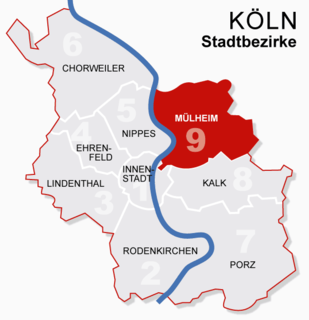The Sadist (German: "Der Sadist") is a book published by psychiatrist Karl Berg, following the confessions of Peter Kürten, [1] a notorious German serial killer known as both The Vampire of Düsseldorf and the Düsseldorf Monster who committed a series of assaults and murders, primarily between 1929 and 1930. [2] [3]
A psychiatrist is a physician who specializes in psychiatry, the branch of medicine devoted to the diagnosis, prevention, study, and treatment of mental disorders. Psychiatrists are medical doctors, unlike psychologists, and must evaluate patients to determine whether their symptoms are the result of a physical illness, a combination of physical and mental ailments, or strictly psychiatric.

Peter Kürten was a German serial killer known as both The Vampire of Düsseldorf and the Düsseldorf Monster, who committed a series of murders and sexual assaults between February and November 1929 in the city of Düsseldorf. In the years before these assaults and murders, Kürten had amassed a lengthy criminal record for offenses including arson and attempted murder. He also confessed to the 1913 murders of a nine-year-old girl in Mülheim am Rhein and a 17-year-old girl in Loscheckes.
A serial killer is typically a person who murders three or more people, usually in service of abnormal psychological gratification, with the murders taking place over more than a month and including a significant period of time between them. Different authorities apply different criteria when designating serial killers. While most set a threshold of three murders, others extend it to four or lessen it to two. The Federal Bureau of Investigation (FBI) defines serial killing as "a series of two or more murders, committed as separate events, usually, but not always, by one offender acting alone".
The book was originally written in German. [4] The first English edition was issued in 1938, by Acorn Press. A second edition was published by William Heinemann Medical Books in 1945. [5]

German is a West Germanic language that is mainly spoken in Central Europe. It is the most widely spoken and official or co-official language in Germany, Austria, Switzerland, South Tyrol (Italy), the German-speaking Community of Belgium, and Liechtenstein. It is also one of the three official languages of Luxembourg and a co-official language in the Opole Voivodeship in Poland. The languages which are most similar to German are the other members of the West Germanic language branch: Afrikaans, Dutch, English, the Frisian languages, Low German/Low Saxon, Luxembourgish, and Yiddish. There are also strong similarities in vocabulary with Danish, Norwegian and Swedish, although those belong to the North Germanic group. German is the second most widely spoken Germanic language, after English.

English is a West Germanic language that was first spoken in early medieval England and eventually became a global lingua franca. Named after the Angles, one of the Germanic tribes that migrated to the area of Great Britain that would later take their name, England, both names ultimately deriving from the Anglia peninsula in the Baltic Sea. It is closely related to Frisian and Low Saxon, and its vocabulary has been significantly influenced by other Germanic languages, particularly Norse, and to a greater extent Latin and French.










